Recent Blog Posts
Will a 2026 Bankruptcy Filing Change Your April Tax Bill?
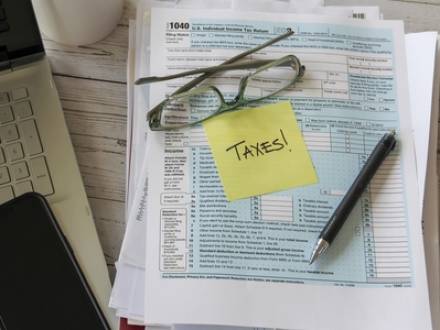 January is one of the most common months for bankruptcy filings in Texas and across the nation. If you are like many Texans, you may be considering filing for bankruptcy at the beginning of 2026. Perhaps the financial strain of the holidays was too much, or the entire year was difficult financially.
January is one of the most common months for bankruptcy filings in Texas and across the nation. If you are like many Texans, you may be considering filing for bankruptcy at the beginning of 2026. Perhaps the financial strain of the holidays was too much, or the entire year was difficult financially.
New year, fresh financial start, right? But when you file bankruptcy in early 2026, you must consider how it will affect your taxes when April rolls around. Tax season is stressful enough, but when you combine taxes and bankruptcy, the results may not be what you expected. Your ultimate decision will depend on several factors, including the type of bankruptcy you plan to file, whether you owe back taxes, and whether you expect a refund.
The bottom line is that timing matters more than most people realize, and it is important that you fully understand all the tax implications of filing bankruptcy early in the year. To avoid unexpected complications, consulting with an experienced Fort Worth, TX bankruptcy attorney is the best step you can take.
Texas Chapter 13 Modifications Caused by Rising Costs
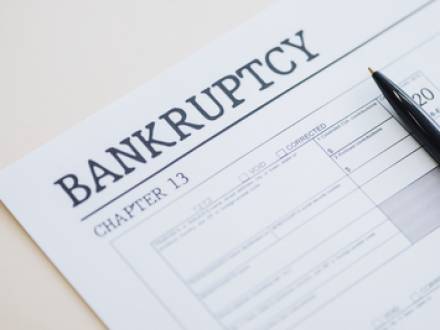 For many Chapter 13 bankruptcy filers, the repayment plan they agreed to may have worked at the time they filed. However, with the cost of living climbing sharply in Texas and across the nation, the agreed-on monthly payments may no longer be feasible. In fact, with Chapter 13 plans lasting from three to five years, there is plenty of time for economic conditions to significantly shift. Texas debtors may be able to get some relief through a modification to their Chapter 13 plan when unexpected financial pressures make the original plan unworkable.
For many Chapter 13 bankruptcy filers, the repayment plan they agreed to may have worked at the time they filed. However, with the cost of living climbing sharply in Texas and across the nation, the agreed-on monthly payments may no longer be feasible. In fact, with Chapter 13 plans lasting from three to five years, there is plenty of time for economic conditions to significantly shift. Texas debtors may be able to get some relief through a modification to their Chapter 13 plan when unexpected financial pressures make the original plan unworkable.
Trustees and judges now routinely see cases where increased rent, insurance premiums, utilities, and groceries make the original payment plan unrealistic. The good news is that these types of inflation-driven changes are among the strongest grounds for a court-approved modification. If you are having difficulty meeting your monthly Chapter 13 payments, a Wise County, TX Chapter 13 bankruptcy attorney can help explore your options for a potential modification.
Handling Criminal Fines in Texas Through Chapter 13 Plans
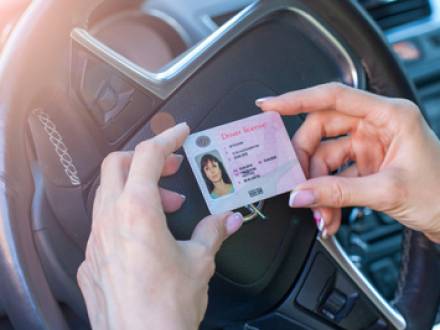 Most people think that bankruptcy only deals with credit card debt, medical debt, and other unsecured debt. What fewer people know is that filing for Chapter 13 bankruptcy in Texas can sometimes help restore a suspended driver’s license when the suspension is related to unpaid criminal fines, surcharges, restitution, or court-ordered fees. While the state of Texas has eliminated the old Driver Responsibility Program, many Texas municipalities, JP courts, and county criminal courts still suspend drivers’ licenses for unpaid obligations.
Most people think that bankruptcy only deals with credit card debt, medical debt, and other unsecured debt. What fewer people know is that filing for Chapter 13 bankruptcy in Texas can sometimes help restore a suspended driver’s license when the suspension is related to unpaid criminal fines, surcharges, restitution, or court-ordered fees. While the state of Texas has eliminated the old Driver Responsibility Program, many Texas municipalities, JP courts, and county criminal courts still suspend drivers’ licenses for unpaid obligations.
A Chapter 13 repayment plan can create a structured, court-ordered path to resolve those debts, often restoring driving privileges far sooner than attempting to pay everything up front. If you want to know whether your criminal fines and resulting driver’s license suspension in Texas can be handled through Chapter 13, it is time to speak to a highly skilled Parker County, TX Chapter 13 bankruptcy lawyer.
FEMA and SBA Loan Recapture in Texas Bankruptcy Cases
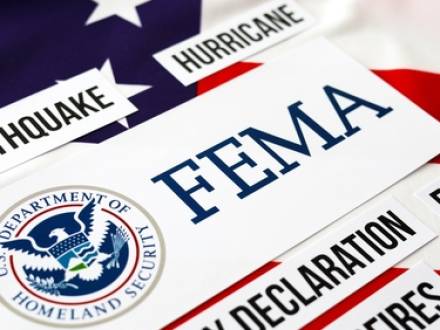 Following a Texas natural disaster, such as a hurricane, flood, or wildfire, financial help from the Small Business Administration (SBA) and FEMA can be a true lifeline. Unfortunately, for some, this relief can later turn into yet another hardship. Texans are receiving recapture letters, demanding repayment of disaster grants or loans months or even years after rebuilding is complete.
Following a Texas natural disaster, such as a hurricane, flood, or wildfire, financial help from the Small Business Administration (SBA) and FEMA can be a true lifeline. Unfortunately, for some, this relief can later turn into yet another hardship. Texans are receiving recapture letters, demanding repayment of disaster grants or loans months or even years after rebuilding is complete.
Should those debts become unmanageable, bankruptcy relief may end up being the only option. It is important to have a full understanding of how FEMA and SBA debts are treated in Texas bankruptcy courts, what determines whether those debts are dischargeable, and how you can prepare before filing for bankruptcy. A highly skilled Wise County, TX bankruptcy lawyer can help you navigate these debts during bankruptcy.
When SBA Disaster Assistance Could Require Repayment
SBA loans, including EIDL and 7(a) loans, do not have special priority under the U.S. Bankruptcy Code and are treated like other government debt. The personal liability for an SBA loan can be discharged in a personal bankruptcy, either Chapter 7 or Chapter 13. If the SBA placed a lien on a specific business or personal asset, the lien will usually survive the bankruptcy discharge.
Are Debts to Family and Friends Wiped Out in Texas Bankruptcy?
 Many of us turn to friends or family members when money is tight. Perhaps we need a loan to cover rent, medical bills, or unexpected business expenses. But what happens if you later file for bankruptcy in the state of Texas? Are these personal loans discharged like credit card or medical debt, or do different rules apply?
Many of us turn to friends or family members when money is tight. Perhaps we need a loan to cover rent, medical bills, or unexpected business expenses. But what happens if you later file for bankruptcy in the state of Texas? Are these personal loans discharged like credit card or medical debt, or do different rules apply?
Under both Chapter 7 and Chapter 13 bankruptcy, debts to an individual (including relatives) are treated the same as any other unsecured debt. However, as you might imagine, emotional, ethical, and legal complications can arise when loans from family members are involved.
It is essential to understand how Texas bankruptcy courts classify, disclose, and treat loans from family and friends to prevent serious misunderstandings – and even fraud allegations. An experienced Parker County, TX consumer bankruptcy lawyer can guide you through sticky issues like this, helping you to get a fresh financial start.
The Little-Known "Super Discharge" in Texas Chapter 13 Cases
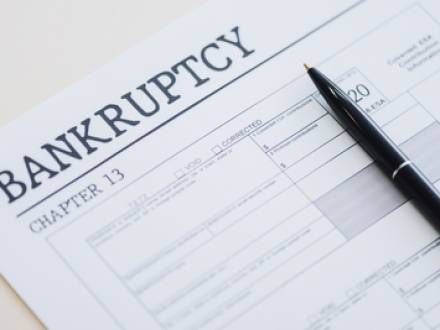 Many people consider Chapter 7 bankruptcy as the easiest, fastest way to eliminate debt. Fewer people are aware that Chapter 13 bankruptcy can sometimes wipe out a wider range of debt under an expanded discharge, known as the "Super Discharge." Under certain conditions, Chapter 13 bankruptcy can eliminate many of the obligations that survive Chapter 7, including some divorce-related payments, older tax debts, and even penalties tied to willful property damage.
Many people consider Chapter 7 bankruptcy as the easiest, fastest way to eliminate debt. Fewer people are aware that Chapter 13 bankruptcy can sometimes wipe out a wider range of debt under an expanded discharge, known as the "Super Discharge." Under certain conditions, Chapter 13 bankruptcy can eliminate many of the obligations that survive Chapter 7, including some divorce-related payments, older tax debts, and even penalties tied to willful property damage.
Small business owners, families, and individuals caught between unmanageable debt and repayment demands should consider this often-overlooked feature of Chapter 13, which can, in many cases, serve as a financial lifeline. To determine whether you are eligible for a Chapter 13 super discharge, speak to an experienced Fort Worth, TX Chapter 13 bankruptcy lawyer.
What Is Chapter 13 "Super Discharge?"
A Chapter 13 super discharge refers to a set of debts that can be discharged or erased in a Chapter 13 bankruptcy case, as compared to a Chapter 7 bankruptcy case. The three-to-five-year repayment plan required in Chapter 13 must be completed to qualify for the elimination of this wider array of debts. Some debts, such as federal tax debt and debts resulting from malicious injury or fraud, are non-dischargeable under Chapter 7, but may be dischargeable under a Chapter 13 super discharge.
When Credit Card Debt May Not Be Dischargeable in Chapter 7
 If you have decided to file for Chapter 7 bankruptcy, you may expect a clean slate when all is said and done, especially when it comes to credit card debt. Although it is true that most unsecured debts will be wiped out by Chapter 7 bankruptcy, there are certain unique situations in which credit card debt can survive bankruptcy. Courts typically scrutinize recent spending, cash advances, and fraud-related purchases during a Chapter 7 bankruptcy filing.
If you have decided to file for Chapter 7 bankruptcy, you may expect a clean slate when all is said and done, especially when it comes to credit card debt. Although it is true that most unsecured debts will be wiped out by Chapter 7 bankruptcy, there are certain unique situations in which credit card debt can survive bankruptcy. Courts typically scrutinize recent spending, cash advances, and fraud-related purchases during a Chapter 7 bankruptcy filing.
It is important to know what types of credit card debt might not be removed under Chapter 7, so there are no unpleasant surprises on your way to a fresh financial start. Having an experienced and knowledgeable Dallas, TX Chapter 7 bankruptcy attorney by your side throughout the process can help ensure that your bankruptcy will wipe out all your unsecured debt.
Buying a Home in Texas After Bankruptcy: How Long Must I Wait?
 Filing for bankruptcy in the state of Texas does not have to mean the end of your dreams of owning a home. While most people assume that filing for Chapter 7 or Chapter 13 personal bankruptcy means they will never qualify for a mortgage, this is not necessarily the case. Although bankruptcy will undoubtedly affect your credit, there is a path to buying a home following bankruptcy.
Filing for bankruptcy in the state of Texas does not have to mean the end of your dreams of owning a home. While most people assume that filing for Chapter 7 or Chapter 13 personal bankruptcy means they will never qualify for a mortgage, this is not necessarily the case. Although bankruptcy will undoubtedly affect your credit, there is a path to buying a home following bankruptcy.
When you have a clear understanding of the loan requirements and waiting periods, and the steps you need to take to rebuild your financial profile, home ownership can become a reality. An experienced Arlington, TX consumer bankruptcy lawyer can help you get back on track financially while working toward purchasing a home.
Bankruptcy’s Impact on Credit Scores and Mortgage Eligibility
A bankruptcy will definitely impact your credit score, with the effect lasting from seven (Chapter 13) to 10 years (Chapter 7). Depending on your credit health before filing for bankruptcy, you can likely expect a credit score drop of at least 100 points. Although the record of bankruptcy remains for years, the negative impact lessens significantly over time. A positive credit history can begin to be rebuilt within one to two years with responsible financial behavior. Furthermore, lenders consider an individual’s overall credit history, rather than just his or her bankruptcy status.
Bankruptcy and Texas Oil Royalties: Are They Protected Assets?
 In 2024, the Texas Oil and Gas Association paid a record 27.3 billion dollars in royalties and state and local taxes. A large portion of these billions of dollars was distributed to individuals across the state, who typically receive 12-25 percent of production revenue annually in the form of royalties. These royalties are derived from ownership of the mineral rights beneath the land where oil is found.
In 2024, the Texas Oil and Gas Association paid a record 27.3 billion dollars in royalties and state and local taxes. A large portion of these billions of dollars was distributed to individuals across the state, who typically receive 12-25 percent of production revenue annually in the form of royalties. These royalties are derived from ownership of the mineral rights beneath the land where oil is found.
While these oil and gas royalties are income, they can also represent a family’s legacy and long-term financial security. What happens when an individual receiving Texas oil royalties files for bankruptcy? Can creditors seize the payments, or are they protected under Texas bankruptcy law? The answer is: it depends.
Texas is known for having some of the most generous bankruptcy exemptions in the country; however, whether oil royalties fall under these exemptions will depend on several factors, including how they are classified and the language in the oil and gas lease. To understand these factors, consulting with an experienced Arlington, TX bankruptcy attorney can be highly beneficial.
What if You Were Less Than Truthful on Your Bankruptcy Forms?
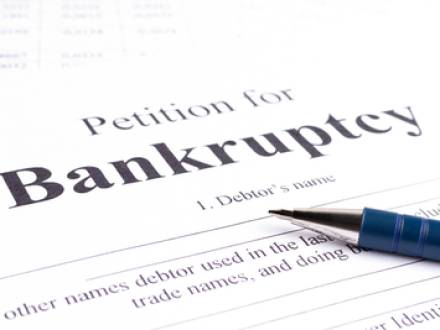 Filing for bankruptcy in Texas can be a beneficial way to achieve a fresh financial start, but being honest throughout the process is crucial. Bankruptcy paperwork requires full disclosure of your financial history, including assets, debts, and income. If you fudge the numbers or intentionally leave things out, you could face serious consequences, even if the mistakes or omissions were not intentional.
Filing for bankruptcy in Texas can be a beneficial way to achieve a fresh financial start, but being honest throughout the process is crucial. Bankruptcy paperwork requires full disclosure of your financial history, including assets, debts, and income. If you fudge the numbers or intentionally leave things out, you could face serious consequences, even if the mistakes or omissions were not intentional.
So, what happens if you were less than honest on your Texas bankruptcy forms, or you realize after the fact that you inadvertently filed with inaccurate information? The best course of action is to discuss the issue with your Wise County, TX bankruptcy lawyer. It could be possible for your attorney to file amended schedules to correct any inadvertent errors or to speak to the trustee as a show of good faith.
What Are Some Common Ways People Are Less Than Truthful in Bankruptcy Filings?
The bankruptcy process is based on transparency and fairness. Filings are made under penalty of perjury, which every bankruptcy filer should take very seriously. Yet, according to a 2021 University of California report, approximately 11.49 percent of bankruptcy filings in 2020 likely involved fraud. The most common ways people seek to "game" the bankruptcy system include:









